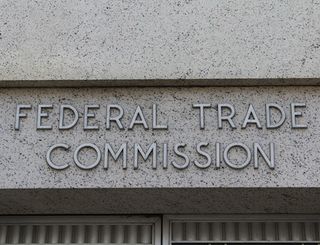Trade Groups Seek FTC Reg Model of Broadband CPNI

A group of broadband and technology trade associations—including the National Cable & Telecommunications Association, American Cable Association and CTIA—have gotten together to take a page from the Federal Trade Commission if the courts uphold its ability to regulate broadband customer information privacy (CPNI, or Customer Proprietary Network Information).
The FTC's authority is essentially limited to enforcing existing rules against unfair and deceptive practices rather than writing new ones.
The FCC is asserting broadband privacy regulatory authority—once held by the FTC over broadband when it was classified as an information service—under its new Title II-based network neutrality rules, which classify Internet access as a common carrier, and which have been challenged in court by some of the same groups, including NCTA and ACA.
Activist groups last month urged the FCC to take a muscular approach to broadband CPNI regulation and to quickly open a proceeding on the issue.
"The FTC’s time-tested framework has accomplished two important goals—it provides consumers with meaningful privacy protection and helps to enable a dynamic marketplace that supports the emergence of innovative new business models," they wrote in a letter to FCC chairman Tom Wheeler.
"Our companies have strong incentives to earn and maintain their customers’ loyalty by protecting their data," they said. "In the rapidly evolving online marketplace, our companies want to ensure that they can continue to provide such protections while meeting consumers’ expectation of continued access to new innovations that enhance their experience."
They say that if the FCC goes ahead with a planned proceeding on how to apply CPNI protections under its current, challenged, broadband regulatory regime, "consumers would be best served by an approach to privacy and data security for CPNI that is harmonized with the FTC’s established privacy protection framework based on enforcement against unfair and deceptive acts or practices."
Broadcasting & Cable Newsletter
The smarter way to stay on top of broadcasting and cable industry. Sign up below
In November, the FCC got together with the Federal Trade Commission on a memorandum of understanding (MOU) on how to divvy up their oversight.
While the FCC now has privacy oversight over broadband that used to be the province of the FTC, the MOU said the agencies don't believe the FTC's common-carrier exemption precludes the FTC from addressing non-common carrier conduct by common carriers.
The FCC has held a workshop on privacy and said it is working on a new broadband CPNI framework, but has not opened a proceeding. It did put out a general advisory to ISPs on reasonable steps for protecting privacy in the interim, but the groups say that is not enough.
Also signing on to the letter were the Internet Commerce Coalition, the Competitive Carriers Association, the Consumer Technology Association and USTelecom.
Contributing editor John Eggerton has been an editor and/or writer on media regulation, legislation and policy for over four decades, including covering the FCC, FTC, Congress, the major media trade associations, and the federal courts. In addition to Multichannel News and Broadcasting + Cable, his work has appeared in Radio World, TV Technology, TV Fax, This Week in Consumer Electronics, Variety and the Encyclopedia Britannica.

